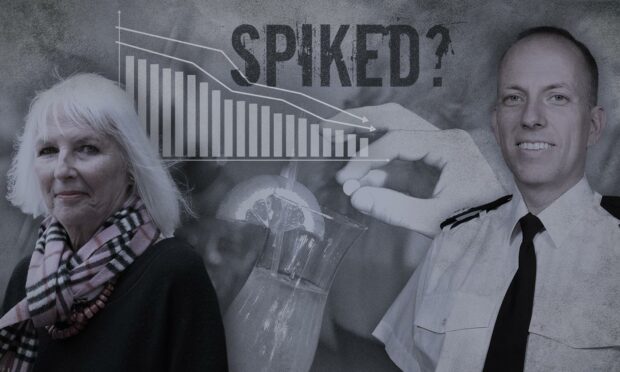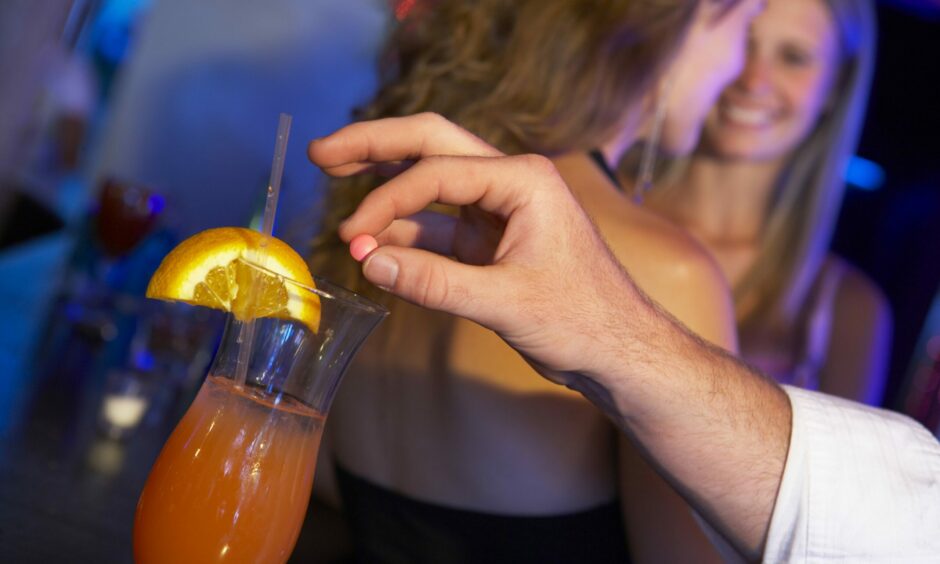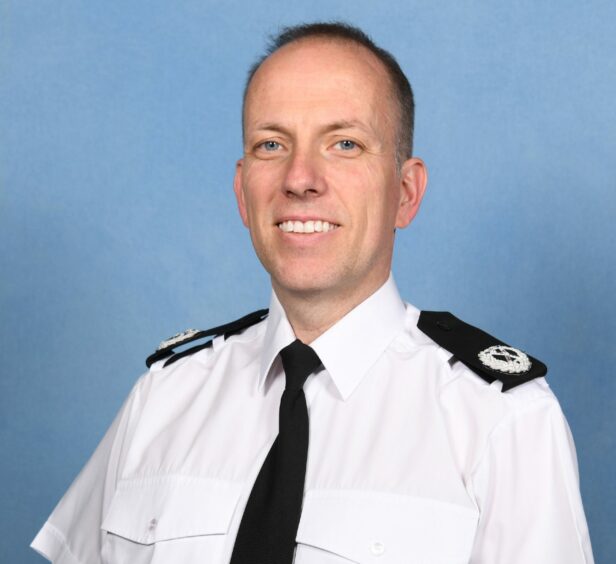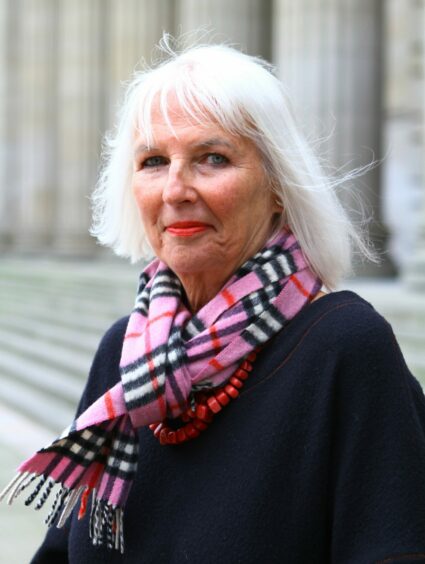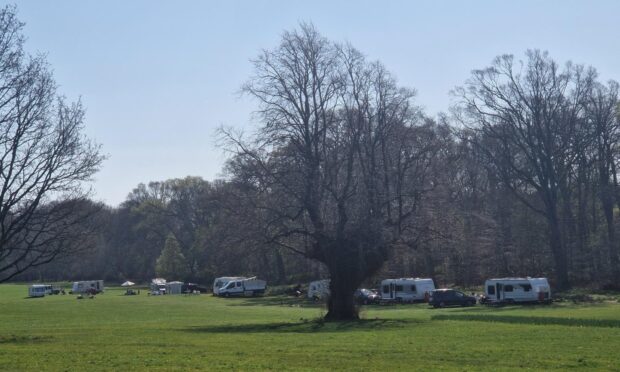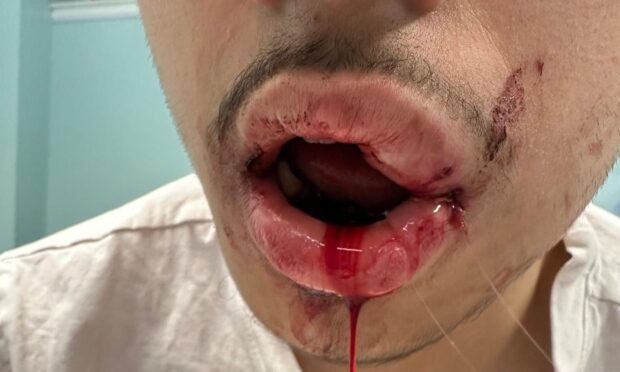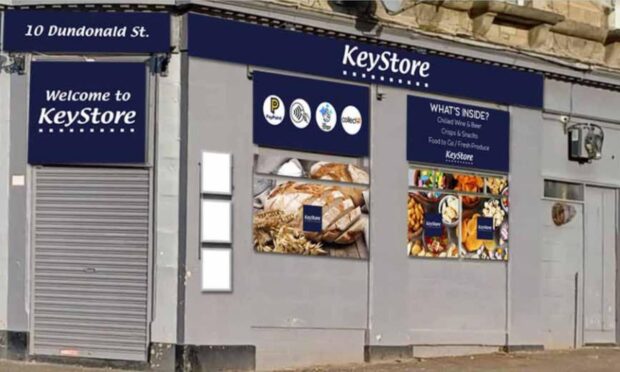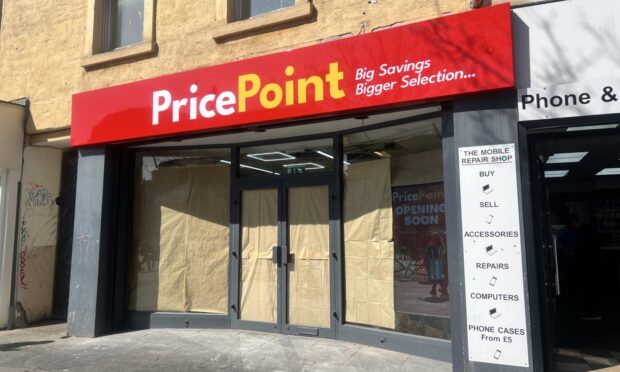More people have come forward to report being spiked in Dundee in 2021 than the last six years combined.
Police have recorded at least 16 cases of spiking in the city this year, compared with 14 between 2015 and 2020.
Thirteen of this year’s incidents were recorded between August and October.
Officers say there has been a reduction in reports since that time but have vowed to continue to investigate any allegations.
The rise this year coincided with a spate of high-profile alleged spikings at pubs and clubs across the country, with reports of people using needles to inject revellers.
Of the 16 cases reported in Dundee between January and October, one was recorded as being administered for “sexual purposes” while the rest fell under drugging with “no further intent”.
Just one of the cases was recorded as “detected”, meaning it had been cleared up by police.
Data obtained by The Courier also shows that instances of spiking have been less common elsewhere in Tayside and Fife.
Four were recorded in Fife in the same timeframe, with one in each of Angus and Perth and Kinross.
The figures also show that women are five times more likely than men to be the reported victims of spiking, while those in the 18 to 25 age group are the most commonly targeted.
Spiking data in detail
Reported spiking cases in Dundee
A spate of spiking incidents was reported across Scotland in September and October.
While some related to drugs being placed into a person’s drink, many were said to have involved a drug being injected using a needle.
In Dundee, the first publicised incident was reported at Captain’s Cabin on Ward Road, where one customer claimed that she had been spiked after being injected by injection.
Just over a week later, another woman issued a warning on social media after she claimed she had been turned away by bouncers while standing in the queue at Underground night club and later found an injection mark under the shorts she had been wearing.
The incidents led to a boycott of some night-time venues and came amid a wider debate around women’s safety.
Police say ‘every report is taken seriously’
Assistant Chief Constable Gary Ritchie from Police Scotland said: “We continue to investigate reports from people having been ‘spiked’ either with a needle or in their drink.
“Thankfully there has been a reduction in such instances and at this time we do not believe that any of the reports are linked.
“We are not always able to determine the reasons why a perpetrator carries out an assault in this way, but would like to reassure you that every report is taken seriously and perpetrators are dealt with swiftly and robustly.
“People should be able to go out for a night out without fear of being spiked.
“We are working with a range of partners, both locally and nationally, to ensure licensed premises are safe spaces for all, through the continued delivery of bystander awareness training.
“We are also working in partnership with other emergency services, student bodies, universities/colleges and third-sector organisations to raise awareness and provide support for anyone effected.
“We would encourage anyone who believes they have had their drink spiked or been assaulted in this way to contact Police Scotland on 101 or in an emergency 999.”
Campaigner says women also facing ‘harassment’
Ann Hamilton, chair of the Dundee Violence Against Women Partnership, says spiking is used by people to exert “abusive behaviour”.
She said: “It’s something else that has been thought up by men to make women more vulnerable.
“We’re very aware of the concerns that the police have and we’re very aware of them talking to businesses about what’s happening and the kinds of safeguards that can be put in place.
“Spiking is obviously a concern but women have also reported that while they are queuing at bars or in crowded places, they quite often experience unwanted touching and harassment.
“I think there are a number of things that maybe publicans and restaurant owners could do to help us keep an eye on these and maybe to look at how they’re running their pubs and clubs.”
Not all spiking incidents reported to police
Mairi McAllister, service manager for Fife Rape and Sexual Assault Centre (Frasac), says there has been a small rise in the number of people coming forward about spiking before being assaulted.
But she says not everyone chooses to report these incidents to police.
Many women are unsafe in their own home and others are unsafe when they choose to meet friends and socialise
“Women should not have to worry about their safety and face these risks,” she said.
“Many women are unsafe in their own home and others are unsafe when they choose to meet friends and socialise, it is unacceptable.
“The figures for males reporting is significantly lower but again I think this reflects the more general reality that fewer men choose to report a rape or sexual assault.
“Any incident reported should and will be taken seriously and Frasac will endeavour to support anyone, male or female, who reaches out to our service.”
